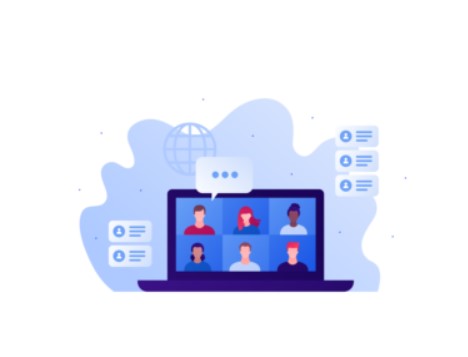9/6/22

There's no denying that learning as an adult is challenging. Thanks to waning neuroplasticity as you age, it becomes harder to retain new skills and change old habits.
The key is to design training programs that work with the unique obstacles that adult learners face. Your sales associates don't learn the same way as kids in a classroom. They have years of life experiences and set patterns.
So how do you break through to your team and help them reach their full potential?
Here are crucial principles to keep in mind when it comes to developing training for your adult learners.
In the 1970s, famed educator Michael Knowles adopted the theory of andragogy. Andragogy is the science behind and the practice of teaching adult learners. The theories Knowles developed continue to influence post-secondary institutions and the training industry as a whole.
One of the most influential adult learning theories is the need for intrinsic motivation. Your associates need to know what they get out of the experience. It's the all-important "What's in it for me" question. If you want to encourage your employees to engage in training, you must let them know how they will benefit.
Everyone has personal internal motivators. In workplace training, it could be closing more sales or earning a reward. Whatever the motivators may be, establish those links early so that your sales associates want to participate.
Adults aren't always keen on learning new things they don't feel will serve them now. Establishing motivation early on goes a long way. However, focusing your training on current problems they face can lead to positive results.
Problem-oriented training is about providing an immediate solution to real-life situations. For example, an employee might have difficulty selling new PCs in your store’s inventory. You can appeal to their needs by providing product-focused training.
Instead of losing focus on generic content, the employee can buckle down because they know that the training information they get will lead to direct improvements in their job performance.
One mistake that many companies make is micromanaging how their employees learn. Adults value autonomy and self-direction. When you are constantly hovering over people and forcing them to complete training "by the books," you're making the experience unappealing and tapping into that internal need for rebellion!
People want to feel responsible for their learning decisions. A great way to foster an environment of successful training and education is to put the matter in their hands.
When possible, provide easy, online access to training and allow your team to train at their own pace and when it’s convenient for them. Microlearning platforms and self-paced training can give your team the freedom they need while still supporting their improvement.
Here's an important thing to remember: Everyone learns differently.
A one-track approach to training doesn't cut it! There are multiple learning styles out there. Some people are just fine reading pages from a textbook and listening to long lectures. However, others lose attention quickly and obtain information more efficiently with short video content.
Successful training programs offer many learning options. Cater to everyone's needs and make the experience as accessible and approachable as possible. Limiting learning styles only leads to a widening training gap that disproportionally affects your team.
As said by Bob Pike, "It's not what you know, it's what you do."
Learning comes with experience. It all comes back to neuroplasticity. Kids have minds that are ready for shaping and learning. But adults are pretty set in their ways.
Life experiences are responsible for retaining the things we learn. Everything else that doesn't matter tends to fall by the wayside.
Keep that in mind when developing training programs. The best way to ensure that training stick is to put them to good use. People trust their own conclusions. You can tell your team that a technique works all day long, but it's not until they see it in action that those concepts "click."
Give your associates ample opportunity to apply what they’ve learned. More importantly, make sure that the environment is safe and suitable for experimentation. Learning something new can make some people feel vulnerable.
Putting them in a position of embarrassment often leads to resistance. To encourage participation and experimentation, foster a culture of positivity and support.
Create opportunities for hands-on application through collaborative environments and mock sales experiences. Even something such as quizzes to test their knowledge is beneficial.
There's no better way to connect to lessons than to teach them! It's one thing to pass tests and go through the motions. But if you want your team to understand new concepts on a deeper level, encourage collaborative training.
It's the ultimate test of competence. You have a much better chance of retaining your knowledge when sharing it.
Try having open forums and discussions for associates to ask questions or provide advice.
The final principle to remember is that having fun matters! No one wants to sit through monotonous classes. Adding an element of enjoyment into the mix can turn the learning process into something your team wants to do.
Gamification can make a significant difference in how your employees approach training. It leads to more engagement and helps your team retain more of the information they learn. Plus, it eliminates some of the stress and anxiety involved, establishing a more relaxed and inviting environment for learning.
Don't expect to see positive results when using child-focused learning strategies in your training efforts. Adult employees have different motivations and life experiences that shape the learning process. Remember these principles and model training to your team's unique needs.
The Intel® Retail Edge Program is a powerful training platform that utilizes these principles to help retail associates reach their full potential on the sales floor. Throughout its 20-plus-year history, the Program has helped sales professionals stay updated on Intel® technologies and the PCs they power.
The program is versatile enough to benefit adult learners thanks to gamification features, manageable lesson modules, multi-media content, a strong community of members, and more. Check out the Intel® Retail Edge Program today and begin your team's journey to success.
Notices and Disclaimers
© Intel Corporation. Intel, the Intel logo, and other Intel marks are trademarks of Intel Corporation or its subsidiaries. Other names and brands may be claimed as the property of others.
